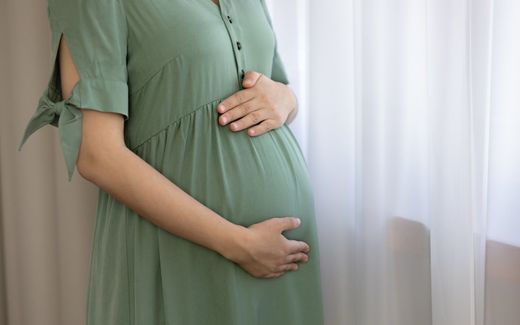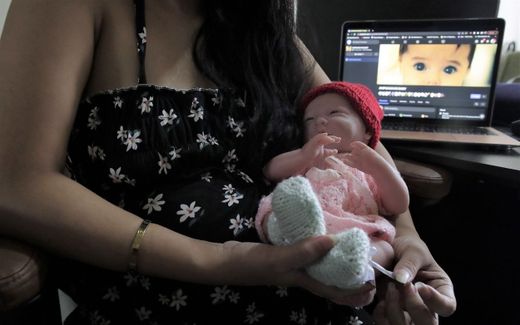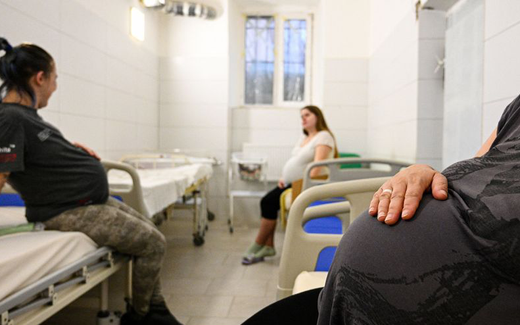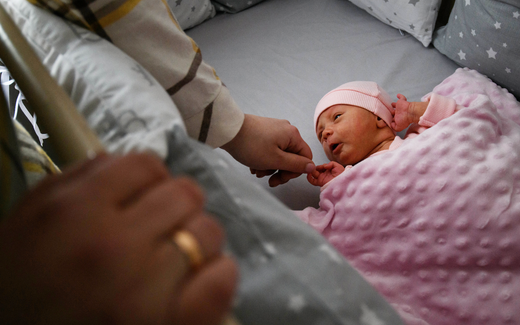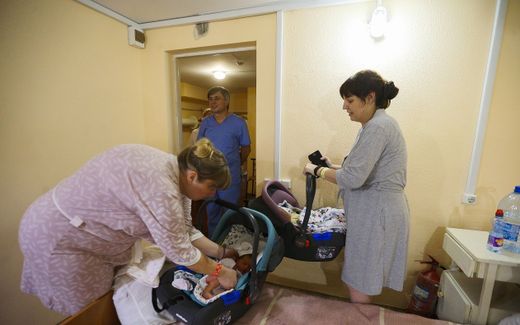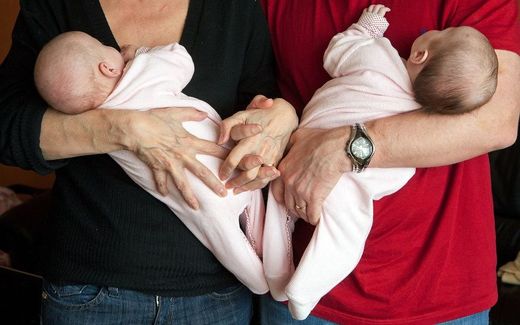For Swedes, surrogacy is more popular than adoption
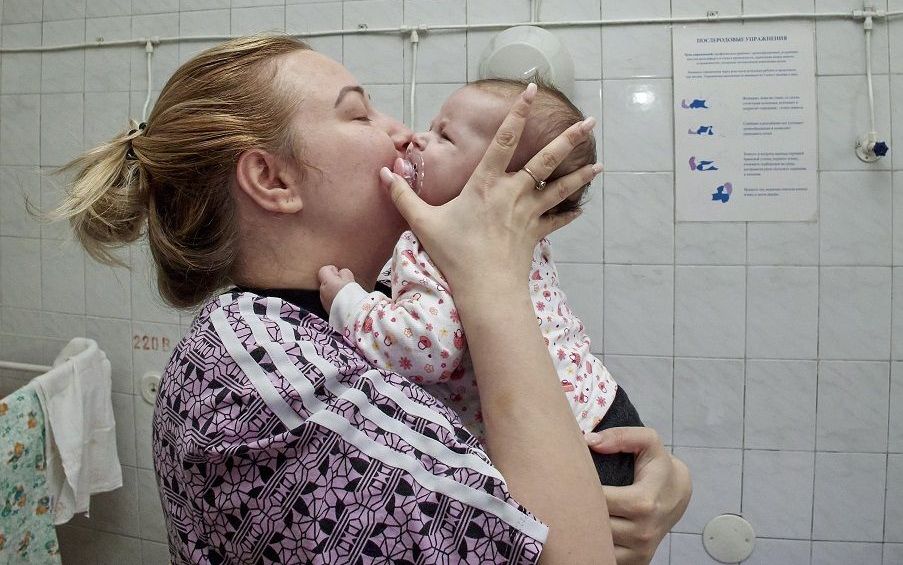
Photo EPA, Sergey Kozlov
Northern Europe
Surrogacy is more popular than adoption in Sweden. The government coalition is divided on how to deal with this new challenge.
Childless Swedes chose surrogacy over adoption to get a child, says Annika Strandhäll. She is an MP for Sweden’s largest party, the Social Democrats, and chairman of Sweden’s Social Democratic Women’s Federation. Strandhäll opposes the practice, likening it to prostitution, trafficking, and organ trade. She, therefore, wants to forbid women to carry a baby for someone else.
Surrogacy became a fierce debate in Swedish society after a celebrity spoke in the media about how he and his husband got a child through surrogacy in the United States.
Currently, Sweden does not know legislation regarding surrogacy. In theory, it is thus possible to ask women around you to carry a child for you altruistically. However, in practice, many Swedes travel abroad to get their child in the commercial sector. Various agencies in Sweden can connect intended parents with clinics abroad. Although there are no official statistics about surrogacy in Sweden, the Swedish Authority for Family Law and Parental Support acknowledges that the number is growing.
And that has to stop, says Strandhäll, whose party ended up in opposition last year after ruling for eight years. She compares commercial surrogacy to prostitution, and does not believe in altruistic surrogacy either. “There aren’t any middle-class mothers who come forward as surrogate mothers”, she says to the Swedish daily Aftonbladet. “It is poor women who are often already exploited and who do this for financial reasons.”
Frustrated
Aftonbladet also spoke with the 39-year-old Hanna, who was born without a uterus and had children via surrogate mothers in Georgia and Ukraine, Europe’s most popular surrogacy destinations. When she reads the negative reports about the practice, the Swedish daily reports, she becomes sad and frustrated. “I have experience of talking to the women who helped us. It is not an image that I recognise that it would be human trafficking.”
According to Hanna, Sweden should study altruistic surrogacy and eventually make legislation to permit this form of surrogacy to prevent people from going abroad. Whether that would make a difference, however, remains to be seen. A 2018 study states that 2 per cent of all global surrogacy agreements are altruistic. The rest is commercial. Ms. Strandhäll wants to stop this “trade in women’s bodies.” According to her, Swedish legislators should take more initiatives to combat surrogacy.
Divided
Other Swedish political parties are also concerned about surrogacy. Indeed, the coalition is divided on the issue. Swedish Christian daily Dagen describes how the Christian Democrats (KD) and the centre-right Moderate Party (M) could not find common ground on the issue during a public debate on Thursday. “It is rare to see government friends M and KD think so diametrically differently on the issue of surrogacy.”
According to Ann-Sofie Thuresson, first vice chairman of the Moderates women’s union, surrogacy should become legal in Sweden. She argues that women should be allowed to decide over their bodies. “If, as a woman, I want to help a sister, a brother or someone I know carry their child, then I should have the right to do so.” Thuresson wanted to emphasise altruistic surrogacy but did not want to rule out commercial surrogacy entirely.
But what about the children? Christian Carlsson is an MP for KD and highlighted the children’s perspective. He argued that children are not a commodity and pointed to the ethical perspective regarding surrogacy, not least the emotional bonds that form during pregnancy and birth.
However, these arguments do not appeal to Ms. Thuresson, writes Dagen. She believes that the woman, in this case, must have the right to choose and that she, as a mother of three, could consider becoming a surrogate mother if it had been legal in Sweden. Furthermore, she states that the criticism against children becoming commodities is precisely because Swedes are forced to go abroad to have children in this way. It would be better to be able to regulate altruistic surrogacy in Sweden, she says.
Child
The Dutch government is also using the same reasoning. As CNE reported on Friday, the coalition there plans to regulate surrogacy. It wants to do that to prevent “lengthy proceedings” and allow children to “at least legally get a good start.” But the coalition in the Netherlands is also divided on the issue. On Friday afternoon, Mirjam Bikker, group leader of the ruling ChristenUnie, tweeted that for her party, the best interests of the child come first. “Further legal regulation of surrogacy quickly increases the likelihood of abuse,” she said.
Related Articles


